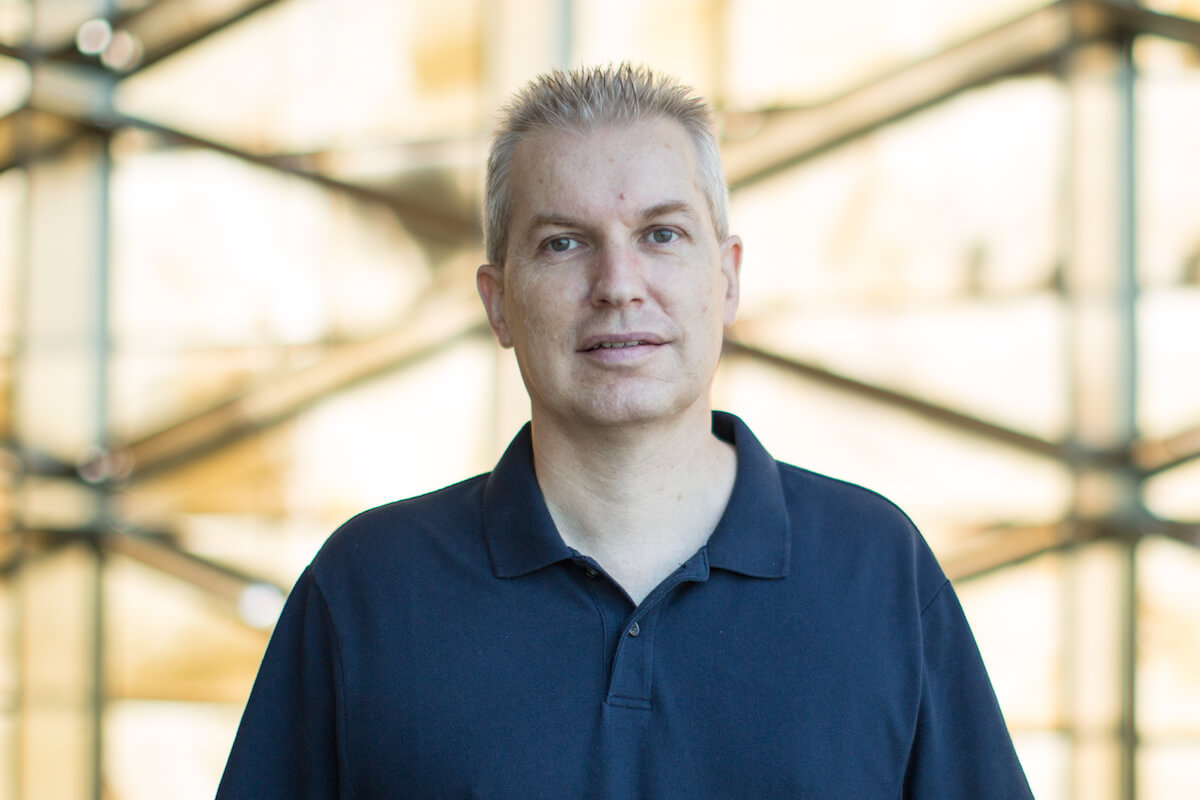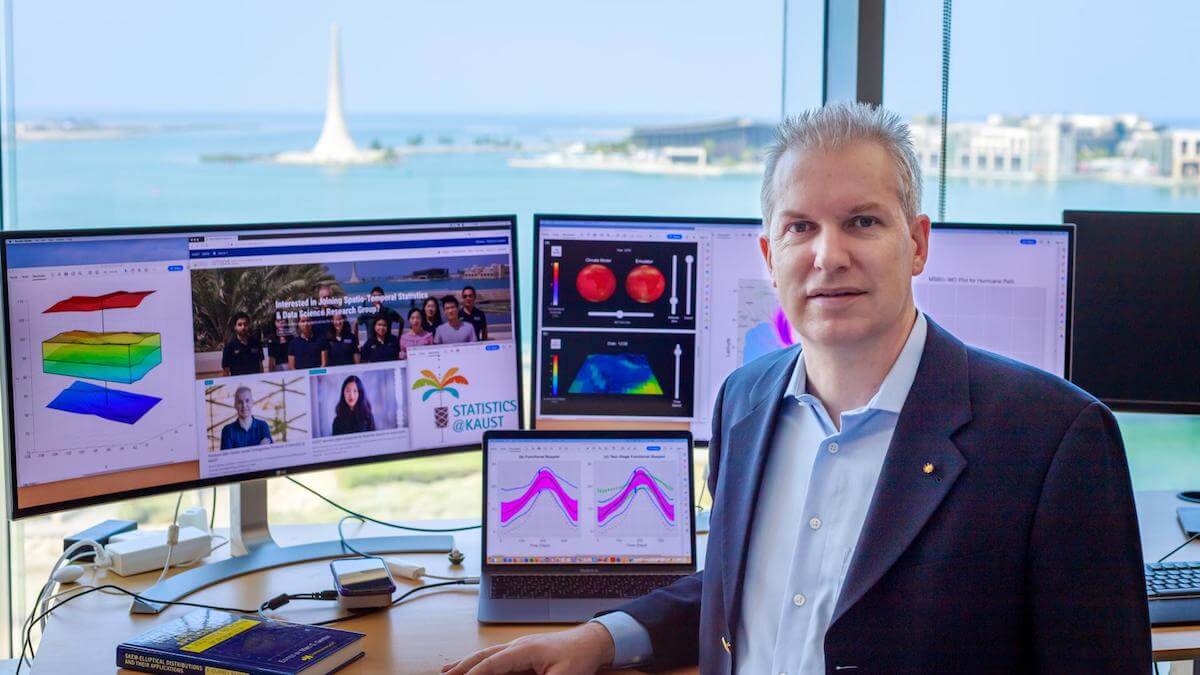Distinguished Professor Marc Genton receives statistics award

Marc Genton, KAUST distinguished professor of statistics, recently received the International Statistical Institute's Service Award 2019 during the World Statistics Congress in Kuala Lumpur, Malaysia. File photo.
By KAUST News
Marc Genton, chair and distinguished professor of the KAUST Statistics Program and head of the Spatio-Temporal Statistics & Data Science research group, received the International Statistical Institute's Service Award 2019 for his efforts and leadership as editor-in-chief of the journal Stat. Genton was honored with his recognition at the Awards Ceremony of the World Statistics Congress 2019, which took place in Kuala Lumpur, Malaysia, from August 18 to 23.
"The three years spent as editor-in-chief were truly gratifying because the journal is fairly new and unique in the world of statistics," Genton said. "Stat's ambition is to maintain exceptional quality standards while pledging very fast review times. I enjoyed leading this journal in its infancy and look forward to seeing it grow further."
Kingdom-wide work
At KAUST, Genton and his team work to find solutions to issues that closely touch the future of Saudi Arabia as the country moves towards a knowledge economy.
"We are trying to develop tools that will help governments and policymakers close the gap between vision and implementation," said Genton. "The plan is [to use] Saudi Arabia as a case study, but we believe that the results will be relevant for most of the Middle East[ern countries'] economies."

KAUST Distinguished Professor Marc Genton and his research team from his Spatio-Temporal Statistics & Data Science research group work on finding solutions for issues facing Saudi Arabia and the region in the near future. File photo.
Research collaborations
In a joint effort with the University of Notre Dame, U.S., Genton is currently devising the logical framework for implementing the Kingdom's wind energy outlook. Optimal sites for the development of wind farms—as well as the primary technical details about turbine models, hub heights and the associated costs—have been identified by statistically analyzing a large volume of high resolution climate model data and financial and logistics figures.
"We demonstrated that wind power plants could be both achievable and cost-competitive here in Saudi Arabia," Genton stated. "The Kingdom is well-positioned to become a role model for wind energy infrastructure development within the Middle East. I'm proud to be able to help Saudi Arabia in this economic transition."
Genton is also involved in the assessment of an infrastructural plan to provide NEOM, the megacity currently under construction in the northwest of Saudi Arabia, with an aeolian grid.

Saudi Arabia's megacity NEOM is currently under construction in the northwestern region of the country. Image courtesy of Shutterstock.
Thanks to this approach and the use of a unique Weather Research and Forecasting dataset, Genton's team is providing the first high resolution risk assessment of wind extremes, with comparison from two spatial extreme models and with computational efficiency improved by parallel computing.
"Under the Bayesian hierarchical framework, we measure the uncertainty of return levels from the posterior Markov chain Monte Carlo samples and produce probability maps of return levels exceeding the cut-out wind speed of wind turbines within their lifetime," Genton explained.

KAUST Distinguished Professor Marc Genton and his team are currently assessing the risk of disruption of wind turbine operations in Saudi Arabia's upcoming megacity NEOM. Image courtesy of Shutterstock.
"Nowadays, statistics and the availability of Big Data sets can save a huge amount of time and money by simulating the outcomes of investments ahead of any strategical decision," noted Genton. "In a Big Data world, statisticians are the 'Wizards of Odds!'"

